Existential Dialogues 2026
“Existential Therapy: A Chorus of Voices”

EXISTENTIAL THERAPY HAS NO SINGLE FOUNDER. Diversity and disagreement recur throughout the approach. While that can be seen to be a weakness, it also allows a perpetual dynamism, keeping the views pertinent and retaining their openness to novel interpretations. In some ways, it might be more accurate to speak of existential therapies rather than any single model or applied system. These 10 discussions that will take place during the 2026 Existential Dialogues set about exploring different perspectives on various topics relevant to existential therapy. In this way, we aim to allow a “chorus of voices” to be heard and appreciated.
NOTE: Each Existential Dialogue can be booked individualy. To book all ten Dialogues grants you a small discount. The Experiential Study Group includes all 10 Dialogues and it’s a close group where participants take a one year commitment to journey together from begining to end.
Practical Information:
Existential Dialogue: this is a one hour live session between Prof. Ernesto Spinelli and the guest teacher of the month (2pm to 3pm UK Time).
Experiential Study Gorup: this is a two-hour practical module (3pm to 5pm UK Time), where participants, inspired by the previous presentation and dialogue, explore and elaborate on their own practice and research with the guest teacher and Bárbara Godoy. Here we can reflect on how our therapeutic work is affecting, disturbing and inspiring our own relationship with Being.
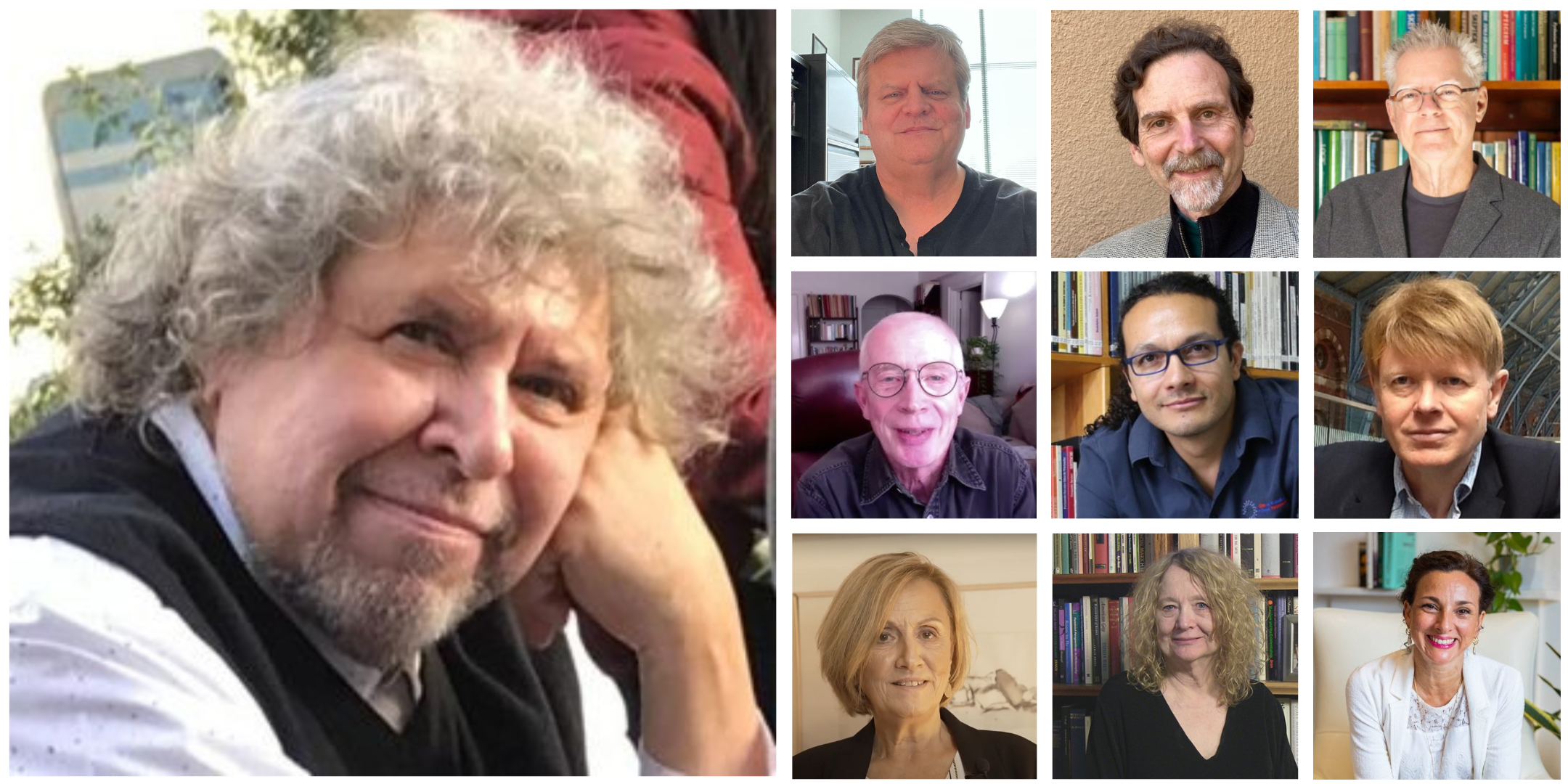
TIMES AND DATES
24 Jan. “Phenomenology” with Prof. Ernesto Spinelli
28 Feb. “Therapoetics” with Dr. Todd DuBose
21 Mar. “Humanistic” with Prof. Kirk Schneider
18 Apr. “Psychoanalysis” with Dr. Michael Guy Thompson
2 May “Daseinanalysis” with Dr. Miles Groth
6 Jun. “Art” with Dr. Yaqui Martinez
18 Jul. “Supervision” with Prof. Simon du Plock
17 Oct. “Family” with Dr. Katerina Zymnis
7 Nov. “Applied” with Dr. Betty Canon
5 Dec. “Group” with Bárbara Godoy
Full course – All 10 Dialogues & Experiential Study Group:
£1260 (2 pm to 5 pm – UK Time)
Only Dialogues:
£630 (2 pm to 3 pm – UK Time)
Venue: Online Zoom
Existential Dialogues 2026 – Programme
Phenomenology
between Prof. Ernesto Spinelli
and Bárbara Godoy
24 January 2026
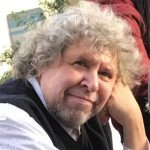 “Edmund Husserl, the founder of what became known as Transcendental Phenomenology, provided key ideas that would form the basis of existentialism, or, more accurately, existential phenomenology. many of the most significant existential philosophers — Martin Heidegger, Jean-Paul Sartre and Maurice Merleau-Ponty among them — acknowledged their deep indebtedness to Husserl and saw themselves as his “students”. Phenomenology, as an investigative approach, focuses its attention upon issues centred upon “understanding” rather than “explanation”. In doing so, it relies upon predominantly descriptive forms of exploration. In doing so, it has directly influenced existential therapy’s emphasis upon the “opening up”, or disclosing, of the client’s world as it is being lived. Such an approach deeply challenges current, dominant assumptions as to what therapy is meant to be about and how it is to be practiced. Going against “common sense” assumptions, phenomenology retains its revolutionary underpinnings and continues to challenge therapists with its proposal to attune themselves to “who and how their clients are being” rather than seek to shift them to other ways of being.”
“Edmund Husserl, the founder of what became known as Transcendental Phenomenology, provided key ideas that would form the basis of existentialism, or, more accurately, existential phenomenology. many of the most significant existential philosophers — Martin Heidegger, Jean-Paul Sartre and Maurice Merleau-Ponty among them — acknowledged their deep indebtedness to Husserl and saw themselves as his “students”. Phenomenology, as an investigative approach, focuses its attention upon issues centred upon “understanding” rather than “explanation”. In doing so, it relies upon predominantly descriptive forms of exploration. In doing so, it has directly influenced existential therapy’s emphasis upon the “opening up”, or disclosing, of the client’s world as it is being lived. Such an approach deeply challenges current, dominant assumptions as to what therapy is meant to be about and how it is to be practiced. Going against “common sense” assumptions, phenomenology retains its revolutionary underpinnings and continues to challenge therapists with its proposal to attune themselves to “who and how their clients are being” rather than seek to shift them to other ways of being.”
Professor Ernesto Spinelli was Chair of the Society for Existential Analysis between 1993 and 1999 and is a Life Member of the Society. His writings, lectures and seminars focus on the application of existential phenomenology to the arenas of therapy, psychology, and executive coaching. He is a Fellow of the British Psychological Society (BPS) as well as an APECS accredited executive coach and coaching supervisor. In 1999, Ernesto was awarded a Personal Chair as Professor of Psychotherapy, Counselling and Counselling Psychology. In 2000, he was the Recipient of the BPS Division of Counselling Psychology Award for Outstanding Contribution to the Profession. And in 2019, Ernesto received the BPS Award for Distinguished Contribution to Practice. His most recent therapy book, Practising Existential Therapy: The Relational World 2nd edition (Sage, 2015) has been widely praised as a major contribution to the advancement of existential theory and practice. His previous books include: The Interpreted World: an introduction to phenomenological psychology, 2nd ed (Sage, 2005); Demystifying Therapy (PCCS, 2006); Tales of Un-Knowing (PCCS, 2006); and The Mirror and The Hammer: Challenging therapeutic orthodoxies (Sage, 2001). Living up to the existential dictum that life is absurd, Ernesto is also the author of an on-going series of Private Eye novels. His most recent standalone novel, Moments – A Greek Island Tale, will be published in 2025.
Recommended readings for “Phenomenology”:
Ihde, D. (1986). Experimental Phenomenology: an Introduction.
Albany: State University of New York.
Spinelli, E. (2005). The Interpreted World: an introduction to phenomenological psychology.
2nd Edition. London: Sage.
Spinelli, E.(2015). Practising Existential Therapy: The Relational World, 2nd ed. London: Sage.
Valle, R.S. & King, M. (1978). Existential-Phenomenological Alternatives for Psychology.
Oxford: Oxford University Press.
Therapoetics
between Dr. Todd DuBose
and Prof. Ernesto Spinelli
28 February 2026
 “Therapoetics explores a radical-hermeneutical-phenomenological practice of heeding lived meaning through being-with, letting be, without why. Heeding is more than just hearing or listening; it is discerning and taking in what matters to those seeking our care regarding their lived situations. Sometimes what is meaningful is explicitly said or shown, sometimes it is pre-reflective, sometimes it is inconspicuous. Heeding is neither correcting what is deficient, nor translating symptoms into conclusive interpretations, nor psychoeducation. Instead, the therapoet resides in a clearing, or space, where what shows itself can do so as it is, in its own way, without explanation, justification or expectation. What shows itself does so in the world, in events. We companion with others and follow phenomena of concern wherever they take us. Therapoetics is born from the braided parentage of theopoetics in continental philosophy of religion/postmodern theology, including the “theological” turn in the “new” French phenomenologists, and the latter Heideggerian phenomenology of the inconspicuous, the inceptive, and the poetic. Therapoetics has similarities with existential phenomenology, logotherapy, person-centered practices, and Daseinsanalysis, but is also differentiated from each one of these ways of caring as well. Therapoetics continues the original practice of therapeia and therapeutikos as “attending to the gods” but with a postmodern scrubbing of both theological and psychological misunderstandings of this art of stewarding lived meaning, guarding intangibles, and shepherding Beyng, Life, and Existenz.”
“Therapoetics explores a radical-hermeneutical-phenomenological practice of heeding lived meaning through being-with, letting be, without why. Heeding is more than just hearing or listening; it is discerning and taking in what matters to those seeking our care regarding their lived situations. Sometimes what is meaningful is explicitly said or shown, sometimes it is pre-reflective, sometimes it is inconspicuous. Heeding is neither correcting what is deficient, nor translating symptoms into conclusive interpretations, nor psychoeducation. Instead, the therapoet resides in a clearing, or space, where what shows itself can do so as it is, in its own way, without explanation, justification or expectation. What shows itself does so in the world, in events. We companion with others and follow phenomena of concern wherever they take us. Therapoetics is born from the braided parentage of theopoetics in continental philosophy of religion/postmodern theology, including the “theological” turn in the “new” French phenomenologists, and the latter Heideggerian phenomenology of the inconspicuous, the inceptive, and the poetic. Therapoetics has similarities with existential phenomenology, logotherapy, person-centered practices, and Daseinsanalysis, but is also differentiated from each one of these ways of caring as well. Therapoetics continues the original practice of therapeia and therapeutikos as “attending to the gods” but with a postmodern scrubbing of both theological and psychological misunderstandings of this art of stewarding lived meaning, guarding intangibles, and shepherding Beyng, Life, and Existenz.”
Dr. Todd DuBose is a world-renowned, Distinguished Full Professor at The Chicago School’s College of Professional Psychology. He teaches philosophical foundations and practices of therapeutic care; ethics; loss and mourning; psychology and spirituality; suffering, meaning, and ideological critiques of practices of care; psychopathology as speech of the suffering soul, among other courses, all from a human science perspective, and with a particular focus on therapoetic care. He is a licensed psychologist, supervisor, consultant, and former chaplain, with thirty-eight years of experience. He holds degrees in continental and comparative philosophy of religion and existential-hermeneutical-phenomenological human science clinical psychology and integrates these approaches as a way of caring for such experiences as the impossible (e.g., no way out, irreversible, incurable, inescapable), the extreme (e.g., psychosis, nihilism, suicidality, homicidality, the anomalous, the uncanny, and the paranormal), and the taboo (e.g., unwanted, unacceptable, unsayable, unforgivable, forbidden, and irreverent). He regularly presents workshops, presentations, or supervises in several international venues such as the Círculo de Estudios en Psicoterapia Existential, in Mexico City, Mexico, the Zhi Mian International Institute of Existential-Humanistic Psychology in Dali, China, the Centre for Existential Practice in Sydney, Australia, and Therapy Harley Street in London. He is widely published and has written on caring for others in very difficult situations including traumatic loss, surviving the COVID-19 pandemic, and the meaning of meaninglessness. He has also written a short dialogue with Miles Groth, edited by Loray Daws, called, Dialogues on The Soul of Existential Therapy, published by The Society for Existential Analysis. Most of all, he considers himself simply a fellow human being.
Recommended readings for “Therapoetics”:
DuBose, T. (2025). Being Lichtung: On Weak Force Therapoetics, in Martinez-Robles, Y. Being Therapeutic: Leading Edges in International Existential Thought and Practice. Circulo de Estudios en Terapia Existencial.
DuBose, T. (2024). Súmptōma: From discrimination through destruction to transfiguration. In A. Cantú, E. Maisel, & C. Ruby (Eds.),Theoretical Alternatives to the Psychiatric Model of Mental Disorder Labeling: Contemporary Frameworks, Taxonomies, and Models (pp. 236–251). Ethics International Press.
Groth, M. , DuBose, T. (2020). Dialogues on the soul of existential therapy. Daws, L., Ed. London: Society for Existential Analysis.
Humanistic
between Prof. Kirk Schneider
and Prof. Ernesto Spinelli
21 March 2026
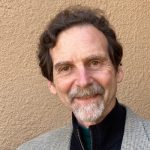 “I will speak about the existential-humanistic (EH) tradition in psychology and how it informs contemporary existential-humanistic and existential-integrative (EI) therapy. This EH/EI tradition draws chiefly on U.S.theorists, such as Rollo May, James Bugental, Irv Yalom, and peripherally, Carl Rogers, and Abraham Maslow. I will highlight core dimensions of this EH/EI tradition beginning with its importation from Europe, the critical and newly explicated role of Otto Rank, the distinctive emphasis on embodiment, here and now presence, practicality, relationality, human possibilities, and awe-based consciousness. I will also explore recent applications of the EH/EI perspective for “emotionally restorative relationships” in our larger world of societies.” Prof. Kirk Schneider.
“I will speak about the existential-humanistic (EH) tradition in psychology and how it informs contemporary existential-humanistic and existential-integrative (EI) therapy. This EH/EI tradition draws chiefly on U.S.theorists, such as Rollo May, James Bugental, Irv Yalom, and peripherally, Carl Rogers, and Abraham Maslow. I will highlight core dimensions of this EH/EI tradition beginning with its importation from Europe, the critical and newly explicated role of Otto Rank, the distinctive emphasis on embodiment, here and now presence, practicality, relationality, human possibilities, and awe-based consciousness. I will also explore recent applications of the EH/EI perspective for “emotionally restorative relationships” in our larger world of societies.” Prof. Kirk Schneider.
Kirk J. Schneider, Ph.D. is a leading spokesperson for existential-humanistic and existential-integrative psychology, an adjunct faculty member at Saybrook University and formerly, Teachers College, Columbia University, and a cofounder and current president of the Existential-Humanistic Institute. Dr. Schneider is a Fellow in seven Divisions of the APA, the recipient of the Rollo May Award from Division 32 of the APA for “Outstanding and Independent Pursuit of New Frontiers in Humanistic Psychology,” and the author/coauthor of 15 books. Among these are The Psychology of Existence (with Rollo May), Existential-Integrative Psychotherapy, Existential-Humanistic Therapy (with Orah Krug), Awakening to Awe, and Life-Enhancing Anxiety.
Recommended readings for “Humanistic”:
My introduction to The Handbook of Humanistic Psychology (2015 edition, Sage; with Fraser Pierson and James Bugental).
Existential-Humanistic Therapy (3rd Edition, 2026; with Orah Krug).
Life-Enhancing Anxiety: Key to a Sane World (2023). University Professors Press.
Existential-Integrative Psychotherapy: Guideposts to the Core of Practice (2015, paperback edition). Routledge.
Awakening to Awe: Personal Stories of Profound Transformation. Jason Aronson.
Psychoanalysis
between Dr. Michael Guy Thompson
and Prof. Ernesto Spinelli
18 April 2026
 “What is the relationship between existential philosophy and psychoanalysis? For many existential therapists, the term “existential psychoanalysis” is an oxymoron. They argue that the two are inherently incompatible. This is especially the case if the psychoanalytic school that is being integrated with existentialism is that of Sigmund Freud. I want to argue that this is not true, and moreover, that I perceive Sigmund Freud as the first existential psychoanalyst! My training in existential psychoanalysis was with R. D. Laing and his colleagues at the Philadelphia Association in London during the 1970s. After leaving London and returning to California I founded Free Association, Inc. in San Francisco, a school that was devoted to training existential psychoanalysts. I subsequently began publishing books that were devoted to integrating existential philosophy with the teachings of Sigmund Freud. Laing, Winnicott, and Bion were instrumental in my efforts to realize this integration, rooted primarily in the thinking of Sartre, Nietzsche, and Heidegger. What makes Freud an existentialist? That love and our fear of intimacy lie at the heart of the human condition, and that virtually all forms of mental and emotional anguish derive from a broken heart. What could possibly be more existential than that?” .
“What is the relationship between existential philosophy and psychoanalysis? For many existential therapists, the term “existential psychoanalysis” is an oxymoron. They argue that the two are inherently incompatible. This is especially the case if the psychoanalytic school that is being integrated with existentialism is that of Sigmund Freud. I want to argue that this is not true, and moreover, that I perceive Sigmund Freud as the first existential psychoanalyst! My training in existential psychoanalysis was with R. D. Laing and his colleagues at the Philadelphia Association in London during the 1970s. After leaving London and returning to California I founded Free Association, Inc. in San Francisco, a school that was devoted to training existential psychoanalysts. I subsequently began publishing books that were devoted to integrating existential philosophy with the teachings of Sigmund Freud. Laing, Winnicott, and Bion were instrumental in my efforts to realize this integration, rooted primarily in the thinking of Sartre, Nietzsche, and Heidegger. What makes Freud an existentialist? That love and our fear of intimacy lie at the heart of the human condition, and that virtually all forms of mental and emotional anguish derive from a broken heart. What could possibly be more existential than that?” .
Michael Guy Thompson, PhD, received his psychoanalytic training from R. D. Laing and associates at the Philadelphia Association in London, and served as the organization’s administrator from 1973–1980. He is Personal and Supervising Analyst and Faculty Member, Psychoanalytic Institute of Northern California, San Francisco, and former Adjunct Professor at the California School of Professional Psychology, San Francisco, and the California Institute of Integral Studies, San Francisco. He is the author of over 100 journal articles, book chapters, and reviews, as well as numerous books, including The Death of Desire: A Study in Psychopathology (1985), The Truth About Freud’s Technique (1994), The Ethic of Honesty (2004), The Death of Desire: An Existential Study in Sanity and Madness (2017, 2nd edition), Essays in Existential Psychoanalysis: On the Primacy of Authenticity (2024), Existential Psychoanalysis: A Contemporary Introduction (2025), and most recently, R. D. Laing in the Twenty-First Century: Sanity, Therapy, Love (2025; with Fritjof Capra and Douglas Kirsner). Most recently, Dr. Thompson is founder and director of New School for Existential Psychoanalysis, a certificate-based virtual training program modeled on his work with R. D. Laing in London, based in San Francisco. He founded Free Association, Inc. in 1988 in San Francisco to further the legacy of R. D. Laing, and inaugurated the annual R. D. LAING IN THE TWENTY-FIRST CENTURY symposium at Esalen Institute in 2015, to further the legacy and relevance of Laing’s contribution to contemporary psychiatry and psychotherapy. He lives in Berkeley, California. www.mguythompson.com
Recommended readings for “Psychoanalysis”:
Thompson, M. Guy (1994) The Truth About Freud’s Technique: The Encounter With The Real. New York and London: NYU Press.
Thompson, M. Guy (2024) Essays in Existential Psychoanalysis: On the Primacy of Authenticity. London and New York: Routledge.
Thompson, M. Guy (2025) Existential Psychoanalysis: A Contemporary Introduction. London and New York: Routledge.
Daseinanalysis
between Dr. Miles Groth
and Prof. Ernesto Spinelli
2 May 2026
 “Therapeutic daseinanalysis (Daseinsanalyse) is a modality, based on orthodox psychoanalysis, developed by the Swiss psychiatrist and psychoanalyst Medard Boss (1903-1990). The name was coined by Jacob Wyrsh and first used by the hospital psychiatrist Ludwig Binswanger in his theoretical work on medical anthropology and psychopathology. The first daseinanalytic institute was founded in 1970. An annual publishing papers in the area has been in publication since 1984. Currently, there are active institutes in Austria, Brazil, Greece, Hungary and the United States, with study groups in the United Kingdom and Poland. Daseinanalysis has taken over from psychoanalysis the use of the couch, invocation of the fundamental rule, and an emphasis on dreaming life. Boss showed that Freud’s metapsychology was superfluous in accounting for the efficacy of therapeutic practice but affirmed that Freud’s praxis was foundational for all psychotherapies, even those that have given up use of the couch and meet analysands vis-à-vis. Daseinanalysis was developed over several decades of Medard Boss’s close cooperation with Martin Heidegger and can be said to be the therapeutic modality most securely based in Heidegger’s analytic of Dasein.” Dr. Miles Groth.
“Therapeutic daseinanalysis (Daseinsanalyse) is a modality, based on orthodox psychoanalysis, developed by the Swiss psychiatrist and psychoanalyst Medard Boss (1903-1990). The name was coined by Jacob Wyrsh and first used by the hospital psychiatrist Ludwig Binswanger in his theoretical work on medical anthropology and psychopathology. The first daseinanalytic institute was founded in 1970. An annual publishing papers in the area has been in publication since 1984. Currently, there are active institutes in Austria, Brazil, Greece, Hungary and the United States, with study groups in the United Kingdom and Poland. Daseinanalysis has taken over from psychoanalysis the use of the couch, invocation of the fundamental rule, and an emphasis on dreaming life. Boss showed that Freud’s metapsychology was superfluous in accounting for the efficacy of therapeutic practice but affirmed that Freud’s praxis was foundational for all psychotherapies, even those that have given up use of the couch and meet analysands vis-à-vis. Daseinanalysis was developed over several decades of Medard Boss’s close cooperation with Martin Heidegger and can be said to be the therapeutic modality most securely based in Heidegger’s analytic of Dasein.” Dr. Miles Groth.
Miles Groth, PhD (philosophy) trained both as an orthodox psychoanalyst and as a daseinanalyst. He taught psychology and philosophy for twenty-five years at Wagner College. He has been in practice since 1972, first in Pittsburgh and since 1981 in New York City. He is the author of eight books and the co-author of four books, the editor of three books, fourteen chapters in edited books, forty-five articles and more about forty book reviews in scholarly journals. He co-founded the American Daseinsanalytic Institute in 2021 with Tamás Fazekas. He has been an invited lecturer in Australia, Canada, and throughout Europe (including Germany, Hungary, and Italy). He has privately published two volumes of translations of texts of Martin Heidegger. His work has been translated into French, Polish, Portuguese and Spanish.
Recommended readings for “Daseinanalysis”:
Miles Groth, Why in the world not? An Introduction to Daseinanalysis, London: Free Associations Books, 2024
Gion Condrau, Martin Heidegger’s Impact on Psychotherapy [1998] (2nd rev. ed., Miles Groth), London: Free Association Books, 2021
Miles Groth and Tamás Fazekas, The Renaissance of Daseinsanalysis: What Does Existential Really Mean?, London: The Society for Existential Analysis, 2021
Art
between Dr. Yaqui Martinez
and Prof. Ernesto Spinelli
6 June 2025
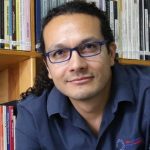 “In many ways, existential therapy can be seen as an artistic practice. Just as art does not aim to explain or fix life but to reveal its depth and complexity, existential therapy is not about applying rigid techniques but about opening space for human existence to unfold in its richness. Both the artist and the therapist engage with the mystery of being, working with presence, sensitivity, and creativity. Art teaches us how to look more closely at ourselves and at the world, to hold ambiguity, and to encounter beauty and tragedy as part of the same fabric of existence. In this sense, the therapeutic relationship, like the artistic process, becomes a space where truth, freedom, and transformation may emerge. This reflection is part of a broader dialogue opened by the recent book on the theme, published by the Society for Existential Analysis, authored by Gianfranco Buffardi and Yaqui A. Martínez-Robles.
“In many ways, existential therapy can be seen as an artistic practice. Just as art does not aim to explain or fix life but to reveal its depth and complexity, existential therapy is not about applying rigid techniques but about opening space for human existence to unfold in its richness. Both the artist and the therapist engage with the mystery of being, working with presence, sensitivity, and creativity. Art teaches us how to look more closely at ourselves and at the world, to hold ambiguity, and to encounter beauty and tragedy as part of the same fabric of existence. In this sense, the therapeutic relationship, like the artistic process, becomes a space where truth, freedom, and transformation may emerge. This reflection is part of a broader dialogue opened by the recent book on the theme, published by the Society for Existential Analysis, authored by Gianfranco Buffardi and Yaqui A. Martínez-Robles.
How can we understand art from an existential perspective?
What does it mean to approach therapy as an art form rather than a science?
How does the encounter with art prepare us for the therapeutic encounter?
Can we, as therapists, allow ourselves to be as vulnerable and creative as artists in front of their canvas?
And what might emerge in therapy if we embraced ambiguity not as a problem, but as a path toward discovery” – Dr. Yaqui Martinez.
Dr. Yaqui A. Martínez-Robles is a psychologist with Masters, PhD and PsyD in Psychotherapy. He has training in Gestalt Therapy; Music Therapy; Transpersonal Psychology and Holotropic Breathwork (with the Grof Transpersonal Training Association); Narrative and postmodern therapies and Social Constructionism; and in Psychedelic-Assisted Therapy (with the Integrative Psychiatry Institute and MAPS-Multidisciplinary Association for Psychedelic Studies). He is the author of four books, and co-author of another four, focused on the existential perspective. He has participated with chapters in several books and with articles in several journals. Yaqui is the founder of the Circle of Studies in Existential Therapy, in Mexico City and in Medellin, Colombia,. He teaches existential-phenomenological psychology and therapy in Mexico and different countries of South America. He is honorary president of the Latin American Association of Existential Psychotherapy (ALPE). He works in private practice as an existential-phenomenological therapist, in modalities one-on-one, couples and groups
Recommended readings for “Art”:
Gianfrranco Buffardi & Yaqui Andres Martínez-Robles (2023). DIALOGUES ON THE PLACE OF CREATIVITY IN EXISTENTIAL THERAPY. The Society for Existential Analysis. London
Supervision
between Prof. Simon du Plock
and Prof. Ernesto Spinelli
18 July 2026
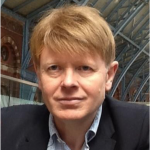 “All existential practitioners are involved in clinical supervision, whether as supervisors, supervisees or both. Given this, it is important to problematise this phenomenon and establish how it can be most congruent with the values that infuse existential-phenomenological therapy. I will make a case that doing this leads us to understand it in a way that frees us from historical connotations of apprenticeship, over-sight, or the application of top-down expertise.
“All existential practitioners are involved in clinical supervision, whether as supervisors, supervisees or both. Given this, it is important to problematise this phenomenon and establish how it can be most congruent with the values that infuse existential-phenomenological therapy. I will make a case that doing this leads us to understand it in a way that frees us from historical connotations of apprenticeship, over-sight, or the application of top-down expertise.
The emphasis is instead on relationship. Our knowledge and understanding of the world is derived through an irreducible grounding of relatedness. We can never understand human being – including our own being – in isolation. The world is a Mitwelt – or ‘with-world’. In existential supervision the supervisor is intimately enmeshed within a particular type of relational field. They cannot choose to focus only, or even primarily, on the therapist who sits with them; or even on the physically absent client. Nor can they take the client-therapist dyad, as reported by the therapist, as their primary focus. Instead their focus is required – if it is to truly acknowledge the foundational principle of relatedness – to encompass the particular ways in which relatedness expresses itself.
While this initially appears somewhat theoretical, I will demonstrate by drawing on practical examples how this focus can enrich our supervisory experience – as supervisors and supervisees – and support an explicitly existential engagement with clients. As I will show, this approach can lead not only clients but also supervisors and therapists to arrive at new understandings of their ‘sedimented’, or fixed beliefs about the world..” -Prof. Simon du Plock.
Professor Simon du Plock was Head of the Faculty of Post-Qualification and Professional Doctorates at the Metanoia Institute, London from 2007 to 2020, in which role he directed counselling psychology and psychotherapy research doctorates jointly with Middlesex University. In 2020 he was appointed as the Institute’s Senior Research Fellow.
He is a Fellow of the Royal Society for Medicine, a Foundation Member with Senior Practitioner Status of the BPS Register of Psychologists Specialising in Psychotherapy, and a Member of the BPS Register of Applied Psychology Practice Supervisors. He has been a BPS Chartered Counselling Psychologist and UKCP Registered Psychotherapist since 1994.
He has authored nearly one hundred journal papers and book chapters on existential therapy, and he has co-edited Existential Analysis, the Journal of the British Society for Existential Analysis, since 1993. He was an editor of the 2019 Wiley World Handbook of Existential Therapy. He has lectured and trained internationally, and in 2006 he was made an Honorary Member of the East European Association for Existential Therapy in recognition of his contribution to cooperation between West and East Europe in the development of existential psychotherapy.
His clinical and research interests include phenomenological research methodology, clinical and research supervision, existential pedagogy, and working with issues of dependency.
Recommended readings for “Supervision”:
Du Plock, S. (2009) Chapter ‘Existential Supervision in the World of Addictions’ in Emmy van Deurzen and Sarah Young (eds) Existential Perspectives on Supervision. Widening the Horizon on Psychotherapy and Counselling. London: Palgrave Macmillan.
Du Plock, S. (2009) An Existential-Phenomenological Inquiry into the Meaning of Clinical Supervision: What do we Mean When we Talk About Existential-Phenomenological Supervision? Existential Analysis, the Journal of the Society for Existential Analysis, Vol. 20.2.
Family
between Dr. Katerina Zymnis
and Prof. Ernesto Spinelli
17 October 2026
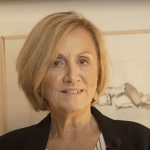 “The Interplay of Individuality and Togetherness in Existential Integrative Family Therapy
“The Interplay of Individuality and Togetherness in Existential Integrative Family Therapy
Existential Integrative Family Therapy (EIFT) is an integrative approach that combines existential psychotherapy with family systems theory, creating a therapeutic space that values both individual experiences and relational contexts. EIFT addresses fundamental existential themes within family dynamics, such as the balance between connection and differentiation, authenticity, self-awareness, and meaningful communication. It emphasizes the interconnectedness of family members and their shared experiences, while also recognizing each individual’s unique existential concerns and search for meaning. Through engaging discussions and experiential exercises, such as role-playing and genograms, the therapeutic process helps families navigate challenges like conflict resolution, life transitions, and intergenerational trauma, ultimately fostering healthier and more authentic family relationships. In this existential dialogue we will deepen our understanding of family dynamics and its profound impact on human existence. Join us for a transformative experience that will leave us inspired and equipped with valuable tools for our practice.”
Katerina Zymnis Georgalos, PhD, is a founding member, co-director, trainer and supervisor at the Hellenic Association for Existential Psychology, gignesthai. She works as a psychotherapist with individuals, families and groups and as a trainer and supervisor at gignesthai. She teaches in postgraduate programs at Panteion University of Social and Political Sciences, at The American College of Greece, and at the University of Thessalia. Her area of interest in research is the process and outcome of psychotherapy, as well as the use of qualitative methods of data analysis. She has contributed with her writing in several books and articles related to existential therapy and psychotherapy process and outcome.
Katerina is a European Certified Psychotherapist (ECP), and an active member of HELASYTH (Hellenic Association for Systemic Therapy) and EFTA (European Association for Family Therapy). She is a founding member of FETE (Federation for Existential Therapy in Europe), Chair of the FETE organizing committee of the 2nd European Existential Therapy Conference in Athens (2020), and Co-chair of the organizing committee of the 3rd World Existential Therapy Conference held in Athens (May 2023).
Recommended readings for “Family”:
Titelman, P. (2014). The concept of differentiation of self in Bowen theory. In Differentiation of self (pp. 33-94). Routledge.
Satir, V. (1988). The new peoplemaking. Science & Behavior Books.
Whitaker, C. A., & Ryan, M. O. (1989). Midnight musings of a family therapist.
Zymnis Georgalos, K. (2024). Embracing Existential Psychotherapy and Family Therapy: A therapeutic journey with families. Existential Analysis: Journal of the Society for Existential Analysis, 35(2).
Applied
between Dr. Betty Cannon
and Prof. Ernesto Spinelli
7 November 2026
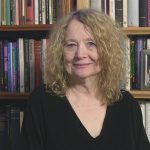 “So, what is Applied Existential Psychotherapy (AEP)? I should know since I invented it and have taught it at the Boulder Psychotherapy Institute since 1989. However, I didn’t call it that in the beginning. My first colleagues at the Institute were fellow graduates of the Gestalt Institute of Denver – so I called it “Gestalt Therapy and Related Approaches.” I had, however, always been influenced by Sartre, Gestalt therapy, existential humanistic psychology (especially Carl Rogers), body-oriented psychotherapy, and classical and contemporary psychoanalysis (especially Freud, Laing, and Winnicott). Finally, my friend and writing buddy Pat Ogden, who founded another approach (Sensorimotor Psychotherapy), said to me one day as we sat writing in a cafe: “Betty, you’re not really doing Fritz Perls’ version of Gestalt––why don’t you call it something else?” I said, “What?” She said, “How about Applied Existential Psychotherapy?” I thought it made sense because, while I don’t usually talk philosophy in therapy (unless the client is interested), I do apply existential ideas to how I do therapy. Also, I had just published a book on Sartre and Psychoanalysis. Winnicott’s idea that “psychotherapy has to do with two [or more] people playing together” is another foundational premise.” – Dr. Betty Cannon
“So, what is Applied Existential Psychotherapy (AEP)? I should know since I invented it and have taught it at the Boulder Psychotherapy Institute since 1989. However, I didn’t call it that in the beginning. My first colleagues at the Institute were fellow graduates of the Gestalt Institute of Denver – so I called it “Gestalt Therapy and Related Approaches.” I had, however, always been influenced by Sartre, Gestalt therapy, existential humanistic psychology (especially Carl Rogers), body-oriented psychotherapy, and classical and contemporary psychoanalysis (especially Freud, Laing, and Winnicott). Finally, my friend and writing buddy Pat Ogden, who founded another approach (Sensorimotor Psychotherapy), said to me one day as we sat writing in a cafe: “Betty, you’re not really doing Fritz Perls’ version of Gestalt––why don’t you call it something else?” I said, “What?” She said, “How about Applied Existential Psychotherapy?” I thought it made sense because, while I don’t usually talk philosophy in therapy (unless the client is interested), I do apply existential ideas to how I do therapy. Also, I had just published a book on Sartre and Psychoanalysis. Winnicott’s idea that “psychotherapy has to do with two [or more] people playing together” is another foundational premise.” – Dr. Betty Cannon
Betty Cannon, PhD, is a licensed psychologist who has taught and practiced in Boulder, Colorado, for over 40 years. She is Professor Emerita of the Colorado School of Mines and president and founder of the Boulder Psychotherapy Institute, which trains mental health professionals in Applied Existential Psychotherapy. In addition to existential philosophy, especially the philosophy of Sartre, AEP has roots in Gestalt therapy, classical and contemporary psychoanalysis, humanistic psychology (especially the person-centered therapy of Carl Rogers), and body-oriented psychotherapy. Betty is a member of the editorial boards of the Journal for the Society of Existential Analysis and Sartre Studies International. She is the author of Sartre and Psychoanalysis and numerous articles and chapters on existential therapy. Her mentor was Hazel E. Barnes, who translated Sartre into English and who was the world’s foremost Sartre scholar until her death in 2008. Betty is her literary executor, and her book on Sartre is dedicated to Hazel. She is presently working on another book with the working title: In the Spirit of Play: Applied Existential Psychotherapy.
Recommended readings for “Applied”:
Cannon, B. (1991): Sartre and Psychoanalysis: An Existentialist Challenge to Clinical Metatheory. Lawrence: University Press of Kansas (French Translation by Laurent Bury, Presses Universitaires de France, 1993)
Cannon, B. & R. Lindberg. (2015) “In the Spirit of Play: Applied Existential Psychotherapy,” International Journal of Psychotherapy 19:1
Cannon, B. (2012) “Applied Existential Psychotherapy: An Experiential Psychodynamic Approach” Chapter 7 in Existential Therapy: Legacy, Vibrancy and Dialogue, ed. Laura Barnette and Greg Madison. London: Routledge
Cannon. B. (July 2009) “Nothingness as the Ground for Change: Gestalt Therapy and Existential Psychoanalysis,” Existential Analysis 20:2
Articles and chapters can be found on Academia.edu or my Therapist Directory Page on the Boulder Psychotherapy Institute Website under Documents: https://boulderpsych.com/directory/member/Betty_Cannon.14
Group
between Bárbara Godoy
and Prof. Ernesto Spinelli
5 December 2026
 “In this dialogue with Ernesto, I would like to go deeper into reflecting on the role of the group therapist from a relatedness perspective.
“In this dialogue with Ernesto, I would like to go deeper into reflecting on the role of the group therapist from a relatedness perspective.
Group therapy unfolds within a sacred, co-created space — designed for dialogue, connection, and the re-invention of self in the presence of others. Unlike individual therapy, this collective format enriches the process through many perspectives. Participants witness not only their own experience but also aspects of themselves reflected in others, bridging isolation and fostering recognition of shared humanity.
From the perspective of relatedness, we tap into the synergy of circulation — the dynamic movement flowing between and through us, softening the fixed definitions of who we say we are.
Borrowing from the performing arts, we enact aspects of ourselves to unlock versions of being that may otherwise be forgotten, denied, or repressed. Through metaphor, we give expression to dissonant parts which — whether we like it or not — remain integral to our constellation.
Grounded in existential principles, this approach explores groupness — the lived experience of being together — and opens new possibilities for creative ways of being-with-others.”.
Bárbara Godoy M.A., Adv. Dip. Exi. Psy. Existential Psychotherapist Group Leader, Counsellour, Lecturer and Supervisor, UKCP accredited, SEA Professional Member, Founder Director of Therapy Harley Street, where she currently leads a team of over 40 professional practitioners in the area of Psychological Services and Wellbeing consultancy. Bárbara is also the founder-director of the ICTEPP Training and CPD Programme at Therapy Harley Street.
Bárbara’s academic contributions in London since 2008 includes lecturing and researching on the theory and practice of Phenomenological Existential Therapy on Doctorate, MA and professional courses at the School of Psychotherapy and Counselling Psychology, Regent’s University and the New School of Psychotherapy and Counselling.
Bárbara has facilitated and designed therapeutic Group Work since 1997. She brought her earliest workshop: “Experiences” to large groups in The Netherlands, Italy, France, UK and Argentina. These awareness-intensive processes are a legacy of the human potential movement (HPM) of 1960s, with techniques such as AUM Meditation Marathons, Psychodrama, Bioenergetics and Primal Feelings work.
Recommended readings for “Group”:
